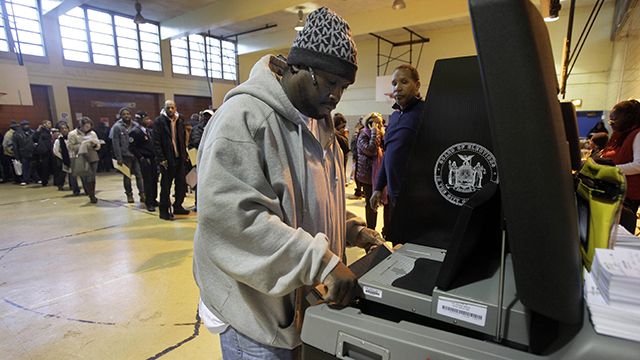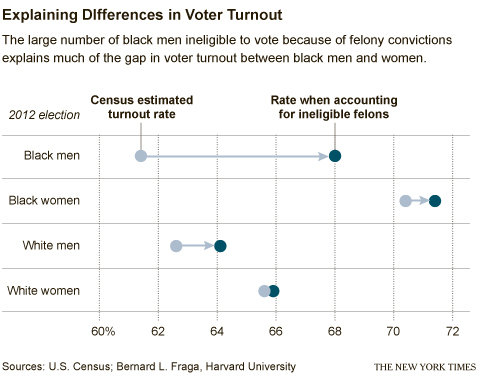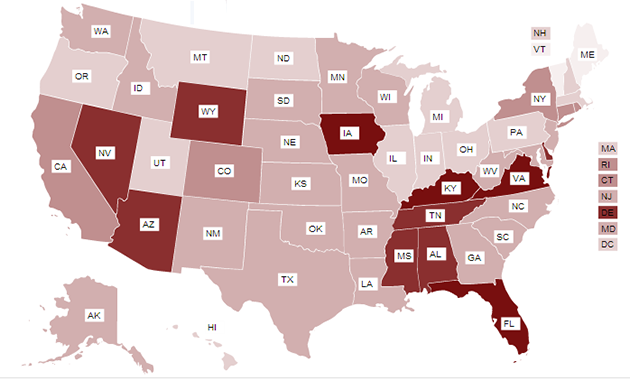
Earlier this month, the Census Bureau reported that more black Americans voted in the 2012 election than any other group, including white Americans. The Associated Press called it a “tipping point” of historic proportions. A new study out this week contends that black male turnout was even higher than the Census reported.
Nearly all US states have laws barring those convicted of a felony from voting while serving time in prison. In 11 states, some felons lose their voting rights for life; the ACLU puts the number of felons currently unable to vote at 5.3 million.
The Census measures voter turnout by counting all individuals of voting age — but nearly one in 10 black men are ineligible to vote because of state felony laws. Harvard political scientist Bernard Fraga found that by excluding black men who are not currently in prison but still cannot vote from the overall count of eligible voters, turnout figures for the group increased from 61.4 to 68 percent. Fraga also saw changes in the figures for black women, and white men and women, but none as substantial as the 6.6 point shift he saw with black men.

via The New York Times
Across the US, minorities are particularly affected both by mass incarceration and felony disenfranchisement laws. In some Southern states, the laws date to the post-Civil War reconstruction period, when states crafted legislation aimed at suppressing the black vote.
In an interview with Bill earlier this year, Bryan Stevenson, the executive director of the Equal Justice Initiative, explained how many of those charged with small crimes, such as position of marijuana, plead guilty without realizing the rights they are giving away by doing so. “You’ll be told that if you plead guilty, you can go home. You’re not told that there will be these collateral consequences,” Stevenson said. “You might lose your right to vote, you’ll be barred from public housing, you won’t ever be eligible for food stamps.”
Click below to use an interactive map from the ACLU to see how felony disenfranchisement laws differ from state to state.


